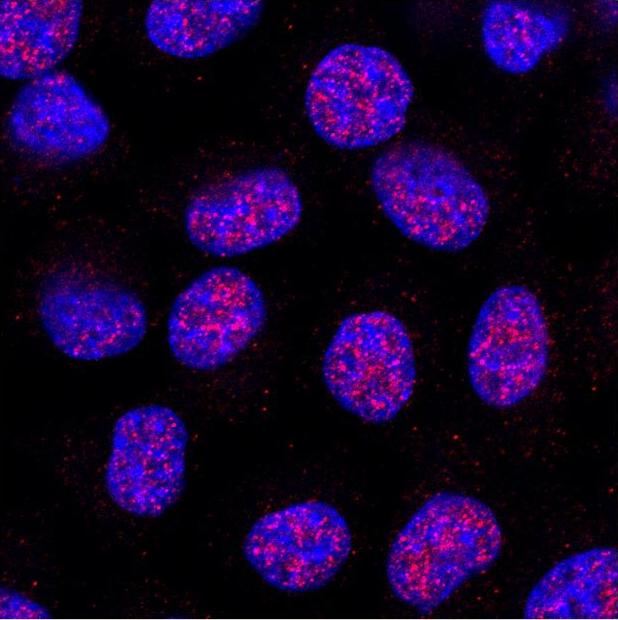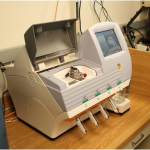Gene identified that sensitizes cancer cells to chemotherapy drugs
NCI scientists have found that a gene, Schlafen-11 (SLFN11), sensitizes cells to substances known to cause irreparable damage to DNA. As part of their study, the researchers used a repository of 60 cell types to identify predictors of cancer cell response to classes of DNA damaging agents, widely used as chemotherapy treatments for many cancers. They found that high SLFN11 expression independently predicted overall survival for a group of ovarian cancer patients who were treated with DNA damaging agents in a NCI clinical trial. Similar results were found for chemotherapy response to colorectal tumors. These findings, led by Yves Pommier, M.D., Ph.D., NCI Center for Cancer Research, appeared in PNAS August 27, 2012.

Specifically, to identify potential genes that could predict the toxicity of DNA damaging agents, the scientists correlated the expression of more than 17,000 genes from the NCI-60 (a 60 cell line panel used to screen for, and characterize, novel anticancer drugs), with the activity of four different topoisomerase I (Top1) inhibitors. As a result, they identified SLFN11 as the single gene to show a highly significant positive correlation in all of the tested Top1 inhibitors. After finding this key gene for Top1 inhibitors, the scientists expanded their analysis to 1,444 other compounds commonly tested in the NCI-60, many with known mechanisms of action and routinely used in clinical practice. The scientists consistently observed significant positive correlations of SLFN11 expression, not only with Top1 inhibitors, but with other classes of DNA damaging agents including cisplatin, doxorubicin and etoposide. As a secondary check on their clinical findings, the researchers conducted laboratory tests on cancer cells from various tumor tissue types where it was known that SLFN11 expression was silenced, and cell death or cell cycle arrest occurred in response to numerous DNA damaging agents. The results of these studies further supported SLFN11 as a gene warranting continued investigational interest.
This text may be reproduced or reused freely. Please credit the National Cancer Institute as the source. Any graphics may be owned by the artist or publisher who created them, and permission may be needed for their reuse.


